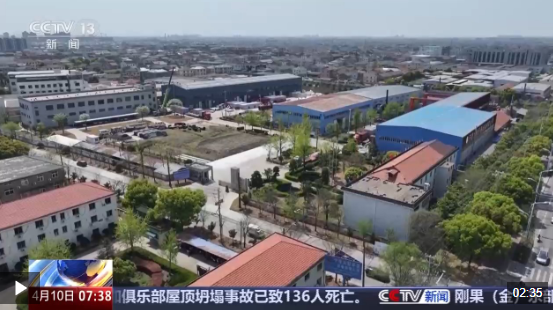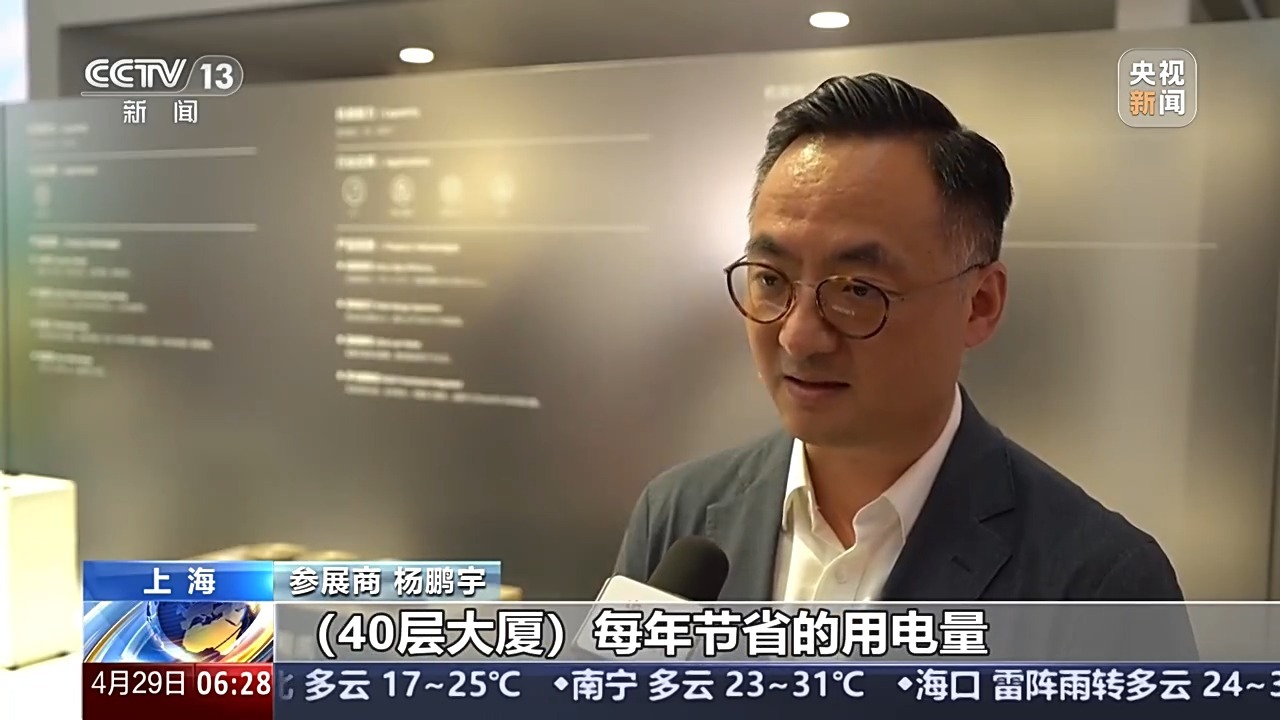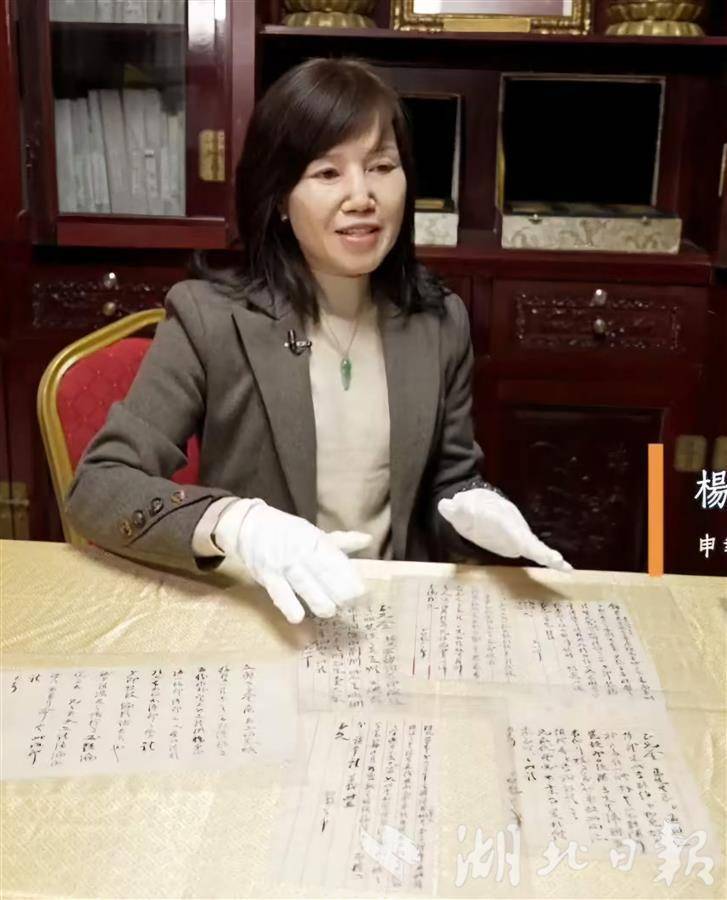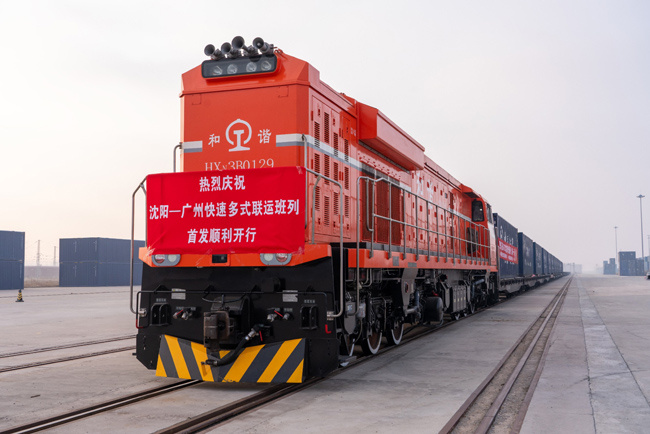Rethinking the consequences of U.S. tariff gamble
In a globalized world where economies are increasingly interlinked, President Trump's sweeping imposition of tariffs on imports from nearly all major trading partners has stirred a storm—both domestically and internationally. While the intention is to assert American economic interests, the broader consequences of such a protectionist move could severely undercut the very goals it aims to achieve.。
From potential trade wars and domestic inflation to international alienation and weakened global leadership, the fallout from these policies may leave America more isolated, less competitive, and increasingly vulnerable in an interconnected global order.。

Tariffs in theory vs. reality。

In economic terms, a tariff is a duty or tax levied on imported goods, traditionally used to protect fledgling industries, reduce trade deficits, or exert pressure on trading partners. Historically, countries like the U.S. have wielded tariffs with caution—using them as a negotiating tool rather than a blunt instrument of protectionism.。

But today's context is different. The U.S. is no longer a manufacturing-heavy economy. Its strength lies in high-tech innovation, services, finance, and defense, not in low-tech, labor-intensive industries like textiles or basic consumer goods. Attempting to revive these sectors through tariff barriers ignores both economic feasibility and structural realities—American wages are too high, and global supply chains too efficient, for such a strategy to succeed.。
A unilateral decision with limited consensus。
Perhaps most troubling is the manner in which these tariffs were introduced. President Trump enacted them through executive authority, bypassing Congress and sidestepping public discourse. Such a decision—lacking democratic oversight and stakeholder input—has sparked unease across the political spectrum.。
Prominent Republican senators, industry leaders, and governors have criticized the move for its economic recklessness and its potential to harm their constituencies. Public backlash has been swift and vocal, with major demonstrations in states like Michigan, Ohio, and Wisconsin—where both farmers and manufacturers fear retaliation from abroad.。
Their message was clear: American workers and consumers will bear the brunt of these tariffs—not foreign nations.。
Who really pays for tariffs?
Despite political rhetoric, tariffs are not paid by foreign exporters. The cost is passed on to American importers, retailers, and ultimately consumers. Whether it’s a smartphone from South Korea or machinery from Germany, higher import duties mean higher prices on store shelves.。
A recent analysis by the U.S. Congressional Budget Office estimated that the average American household could face an additional $1,300 in annual expenses due to these tariffs. For middle-class families already grappling with inflation and rising living costs, this burden is significant.。
Moreover, small businesses—which form the backbone of the U.S. economy—are disproportionately affected. Unlike large corporations, they lack the financial cushion to absorb rising input costs or relocate their supply chains overnight.。
Global reaction: Allies alarmed, rivals energized。
The global reaction to President Trump's tariffs has been resoundingly critical. Traditional U.S. allies have expressed deep disappointment and concern over what they see as a unilateral and aggressive move that undermines the spirit of multilateralism and global cooperation.。
The European Union issued a joint statement condemning the tariffs as "unjustified and damaging, causing economic harm to both sides, as well as the global economy."。
Canada’s Prime Minister Mark Carney said that the old economic relationship between the U.S. and Canada is “over,” vowing that Ottawa will respond “forcefully.”。
The Chinese government strongly condemns and firmly opposes U.S. abuse of tariffs.。
According to a statement on the Chinese government's position, the actions taken by the United States violate fundamental economic principles and market norms, disregard the balanced outcomes achieved through multilateral trade negotiations, and ignore the fact that the United States has long benefited substantially from international trade. Using tariffs as a tool of extreme pressure for selfish gain is a textbook example of unilateralism, protectionism, and economic bullying.。
Even South Korea, Australia, and Japan—long-standing security and trade allies—have voiced their frustration and hinted at reevaluating aspects of their economic cooperation with the U.S.。
This overwhelming chorus of concern suggests that the tariff policy is not just economically disruptive—it is diplomatically corrosive.。
Global retaliation: A domino effect。
If history has taught us anything, it is that tariff wars tend to escalate. In response to U.S. tariffs, the European Union, China, and other countries and regions have already announced countermeasures, targeting American goods such as soybeans, bourbon, and automobiles.。
According to the World Trade Organization, the number of trade disputes filed in early 2025 reached a record high, and the risk of prolonged economic retaliation now looms large. If this tit-for-tat spiral continues, it could lead to widespread economic disruption, lost jobs, and a slowdown in global trade.。
The World Bank warned that U.S. across-the-board tariffs of 10% could reduce already lackluster global economic growth of 2.7% in 2025 by 0.3 percentage point if America's trading partners retaliate with tariffs of their own. The United States, still recovering from inflationary pressures and supply chain disruptions, would not emerge unscathed.。
Undermining U.S. alliances and global influence。
Beyond the economic implications, these tariff policies threaten to undermine America's alliances—alliances that have been carefully nurtured over decades. Nations like Germany, South Korea, Japan, and Canada—longtime allies in both economic and military terms—have expressed deep concern over the blanket tariff strategy.。
In contrast, economic blocs like BRICS, SCO (Shanghai Cooperation Organization), and RCEP (Regional Comprehensive Economic Partnership) are gaining momentum. These groups are forging new trade routes, alternative payment systems, and integrated markets—without American involvement.。
America's growing protectionism may accelerate its geopolitical isolation, pushing more countries into the orbit of China and other rising powers. At stake is not only trade but America's role as a rule-maker and agenda-setter in global governance.。
Rethinking the path forward。
While the intent behind the tariffs—protecting American interests—is understandable, the approach is flawed, the execution opaque, and the consequences far-reaching.。
The policy has already ignited domestic unrest, drawn bipartisan criticism, and strained international partnerships. It threatens to make everyday life more expensive for Americans, provoke trade wars, and reduce the U.S.'s global relevance.。
Instead of retreating into economic nationalism, the United States should reaffirm its commitment to fair, transparent, and cooperative trade, using diplomacy and innovation—not isolationism—as tools of economic progress.。
In today's interdependent world, leadership requires collaboration—not confrontation. America must choose wisely.。
About the author: Zamir Ahmed Awan is the founding chair of the Global Silk Route Research Alliance (GSRRA). He is a sinologist and former diplomat. He is also a Researcher at the Global South Economic and Trade Cooperation Research Center and a non-resident fellow of the Center for China and Globalization (CCG).。
(责任编辑:知识)
-
 好艺人具有“不完美自在”吗?拍照电视剧《乌云之上》时,孙俪有时会闪过想法:“导演,要不咱们吵一架吧。”她想从花菁导演口中听到更多要求,期望监视器外的眼睛能捕捉到监视器前不完美的细节,那意味着提高空间,
...[详细]
好艺人具有“不完美自在”吗?拍照电视剧《乌云之上》时,孙俪有时会闪过想法:“导演,要不咱们吵一架吧。”她想从花菁导演口中听到更多要求,期望监视器外的眼睛能捕捉到监视器前不完美的细节,那意味着提高空间,
...[详细]
-
 4月30日,江苏沿江及以北区域遭受突发劲风、冰雹等强对流气候突击,形成11人逝世,多地农作物受灾、房子受损坍毁。当时,江苏有关当地和部分正全力抢救伤员,妥善安置受灾大众。为了赶快康复大众出产日子,江苏
...[详细]
4月30日,江苏沿江及以北区域遭受突发劲风、冰雹等强对流气候突击,形成11人逝世,多地农作物受灾、房子受损坍毁。当时,江苏有关当地和部分正全力抢救伤员,妥善安置受灾大众。为了赶快康复大众出产日子,江苏
...[详细]
-
 跟着AI技能的遍及,一键换脸等技能越来越常见。上海一家网络科技公司开发了小程序,推出“一键换脸古风汉服”项目,但他们却因而收到了法院的传票。这是怎么回事呢?在某网络视频渠道,翻开上海这家公司开发的小程
...[详细]
跟着AI技能的遍及,一键换脸等技能越来越常见。上海一家网络科技公司开发了小程序,推出“一键换脸古风汉服”项目,但他们却因而收到了法院的传票。这是怎么回事呢?在某网络视频渠道,翻开上海这家公司开发的小程
...[详细]
-
 “乡亲们,你们说,本年的茶好吗?”。“好!”。“茶好,那价格呢?”。“店员们,给老板们算一算。”。“茶好,价格好,咱们全都要了,装箱吧!”。“武夷水仙30箱发往泉州港,武夷肉桂60箱发往广州,大红袍发
...[详细]
“乡亲们,你们说,本年的茶好吗?”。“好!”。“茶好,那价格呢?”。“店员们,给老板们算一算。”。“茶好,价格好,咱们全都要了,装箱吧!”。“武夷水仙30箱发往泉州港,武夷肉桂60箱发往广州,大红袍发
...[详细]
-
凝心聚力 实干笃行丨翻开世界地图经商 中国企业走通“出海”之路
 本年以来,我国外贸耐性不减,进出口能够完成平稳局面,离不开每一个企业实实在在的探究。在浙江宁波的一家环保设备出产企业,凭仗技能抢先和供应链优势,展开空间延伸至更多新赛道,从出口为零,到年海外出售超越1
...[详细]
本年以来,我国外贸耐性不减,进出口能够完成平稳局面,离不开每一个企业实实在在的探究。在浙江宁波的一家环保设备出产企业,凭仗技能抢先和供应链优势,展开空间延伸至更多新赛道,从出口为零,到年海外出售超越1
...[详细]
-
“月满中秋 佳节献礼” 9月19日红点装修邀您一同同享团圆日!
 中秋节是我国一个重要的传统节日,中秋节的最大含义和宗旨是“团圆”。值此佳节,9月19日当天红点装修约请广阔合肥业主一同同享团圆日,一同猜灯谜、赏月兔,和嫦娥姐姐一同品月饼,还有
...[详细]
中秋节是我国一个重要的传统节日,中秋节的最大含义和宗旨是“团圆”。值此佳节,9月19日当天红点装修约请广阔合肥业主一同同享团圆日,一同猜灯谜、赏月兔,和嫦娥姐姐一同品月饼,还有
...[详细]
-
制冷设备也有了“神经元” 去展会看AI大模型怎么追寻每度电的去向
 第三十六届我国制冷展4月27日至29日在上海举办,招引了来自32个国家和地区的近1200家参展商参展,展览面积达11.5万平方米,专业观众打破8万人次,规划再立异高。多款国产立异技能会集露脸,展现了我
...[详细]
第三十六届我国制冷展4月27日至29日在上海举办,招引了来自32个国家和地区的近1200家参展商参展,展览面积达11.5万平方米,专业观众打破8万人次,规划再立异高。多款国产立异技能会集露脸,展现了我
...[详细]
-
曾侯乙编钟当选世界回忆丨“是一台让人震慑的青铜时代‘钢琴’” ——访世界回忆世界名录评委杨开荆教授
 湖北日报全媒记者 龚雪 通讯员 艾海边 赵文。4月26日,湖北日报全媒记者电话采访了世界回忆世界名录评委之一、澳门城市大学特聘教授杨开荆。“曾侯乙编钟闻名中外,以一起的青铜器为载体,承载我国悠长而优异
...[详细]
湖北日报全媒记者 龚雪 通讯员 艾海边 赵文。4月26日,湖北日报全媒记者电话采访了世界回忆世界名录评委之一、澳门城市大学特聘教授杨开荆。“曾侯乙编钟闻名中外,以一起的青铜器为载体,承载我国悠长而优异
...[详细]
-
 人民网北京4月10日电 记者孙红丽)4月10日,商务部举办例行新闻发布会,介绍近期商务范畴重点工作有关状况,并答记者问。有记者问,美国总统特朗普表明,我国期望达成协议,但不知道怎么开端。继昨日再度加征
...[详细]
人民网北京4月10日电 记者孙红丽)4月10日,商务部举办例行新闻发布会,介绍近期商务范畴重点工作有关状况,并答记者问。有记者问,美国总统特朗普表明,我国期望达成协议,但不知道怎么开端。继昨日再度加征
...[详细]
-
 合肥热线讯。 重庆周边自驾哪里玩?在平均海拔1900米的武隆仙女山,隐藏着一条被评为国内最美公路的景区公路。这儿牛马成群、空谷鸟鸣,森林草原绵亘不绝。9月4日,上百辆贴有“喀斯特国旅九月奇
...[详细]
合肥热线讯。 重庆周边自驾哪里玩?在平均海拔1900米的武隆仙女山,隐藏着一条被评为国内最美公路的景区公路。这儿牛马成群、空谷鸟鸣,森林草原绵亘不绝。9月4日,上百辆贴有“喀斯特国旅九月奇
...[详细]

 春菜廉价了!大白菜真的卖出了“白菜价”
春菜廉价了!大白菜真的卖出了“白菜价” 科技范儿十足!“机械化+智能化”助力新疆农业栽培
科技范儿十足!“机械化+智能化”助力新疆农业栽培 2024年度全国十大考古新发现,揭开古人类日子的更多谜底
2024年度全国十大考古新发现,揭开古人类日子的更多谜底 游客奔县进村 云梦小城出圈
游客奔县进村 云梦小城出圈 联播一瞬丨挖到宝了!我国发现新矿种高纯石英矿
联播一瞬丨挖到宝了!我国发现新矿种高纯石英矿
